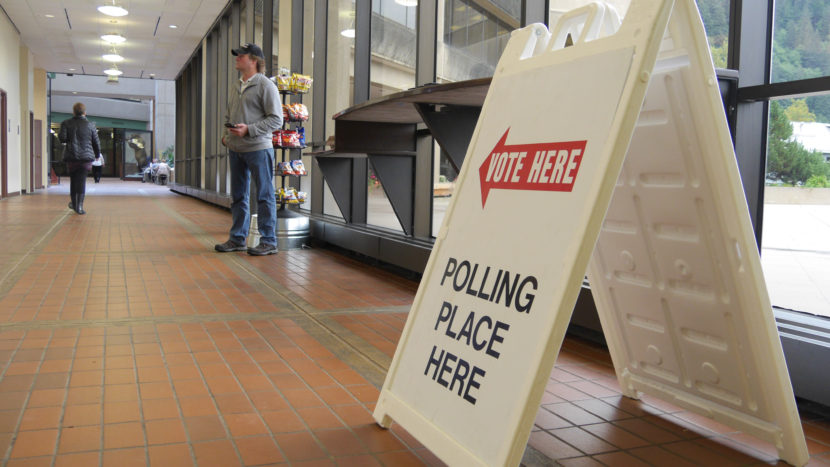
Through Monday, the Alaska Division of Elections says it has received more than 4,800 absentee ballots for the Nov. 6 general election.
Those voters likely would not have known that incumbent Gov. Bill Walker was ending his re-election campaign, which he announced Friday.
Jerry McBeath is a political science professor emeritus at the University of Alaska Fairbanks. He said the impact those absentee ballots will have on the governor’s race is unclear.
“In a really tight election, yes the absentee ballots are going to make a difference. But I’m not thinking that this election race is going to be that tight,” McBeath said.
He estimates absentee votes will account for less than 10 percent of the overall ballot count.
Recent polls had shown Democrat Mark Begich and independent Walker splitting the overall vote, giving Republican Mike Dunleavy a considerable advantage. Libertarian candidate Billy Toien is also running.
“And so then the question is: What is going to happen to the votes that Walker and Mallott otherwise would have gotten? And they won’t break down the middle,” McBeath said.
Ballots for the general election will still feature Walker and former Lt. Gov. Byron Mallott, who resigned last week. Mallott said he’d made inappropriate comments that put someone “in a position of vulnerability.”
Walker threw his support behind Begich, saying the former U.S. senator has a better chance of beating Dunleavy.
The Division of Elections said Monday any votes cast for a candidate on the ballot would be counted regardless of whether the candidate is still running.
According to division spokesperson Samantha Miller, that means voters cannot re-vote after their absentee ballots have been received.
Early and in-person absentee voting also began Monday at designated locations across the state.
The deadline to request an absentee ballot by mail is Oct. 27.




